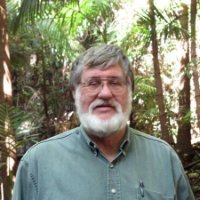September 21, 2016
Climate Change Group hosts Australian scientist to discuss soil temperatures and global warming

The K-State Climate Change Group will meet at 10 a.m. Friday, Sept. 23, in 1063 Durland Hall. John Knight, a scholar from the University of Sydney, Australia, who is currently visiting K-State's agronomy department, will present, "Long-term soil temperature rise: effect and cause of global warming." All are welcome to attend.
Many agricultural research stations around the world have made daily measurements of soil temperature at various depths, and some have data series dating back more than one hundred years. Much of the northern hemisphere data has been analyzed and shows long-term warming trends. With colleagues at the University of Sydney, Knight analyzed a series of soil temperature measurements from 1942-2010 in Cowra, Australia, and compared them to other data from eastern Australia. They found a definite warming trend from about 1970 to the present.
Knight will talk about soil temperature dynamics, and explain why the daily temperature peak lags the peak in solar radiation by about three hours.
Most of the soil biochemical and microbial activity resulting in the emission of greenhouse gases such as methane, carbon dioxide and nitrous oxide is temperature dependent, and will increase with increasing soil temperature.
When soil emission of greenhouse gases is measured above the soil surface by flux chambers or eddy covariance, there is usually a daily peak which lags behind the temperature peak at the soil surface, and some workers refer to this phase lag as hysteresis.
Knight will show that this time lag is influenced by the soil thermal properties, the depth of the microbial activity and the soil water content which determines the diffusivity of the gas through the soil.
